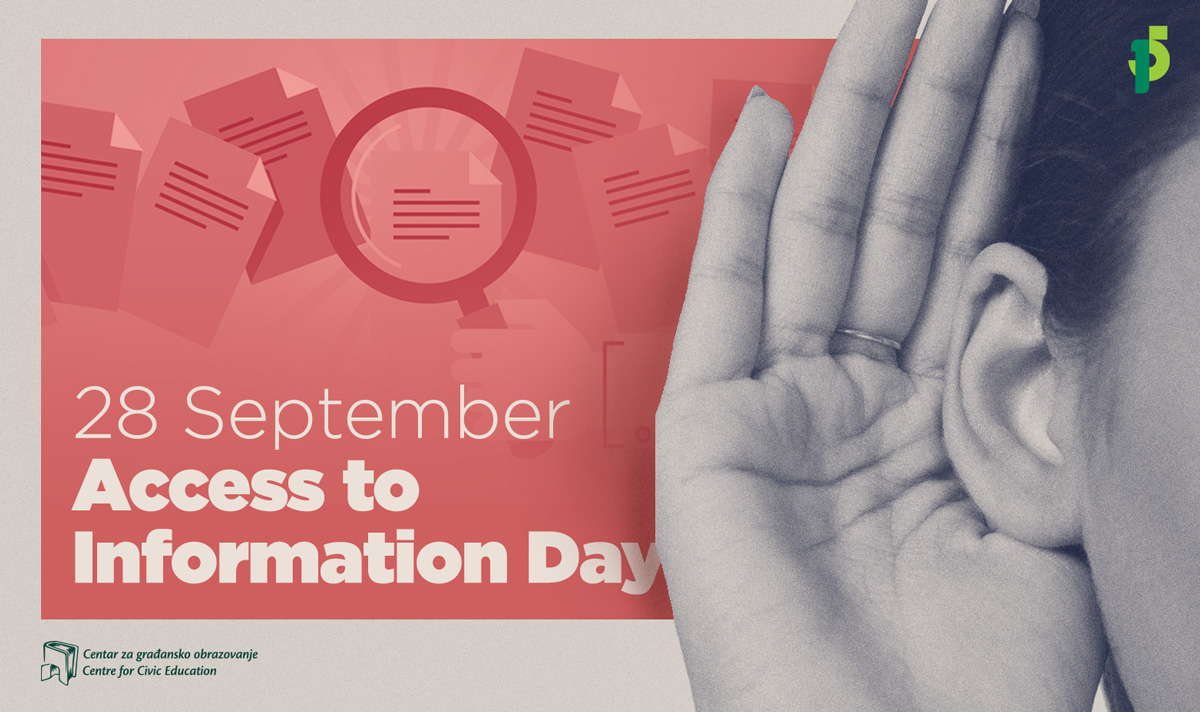Centre for Civic Education (CCE) on the occassion of day of free access to information reminds that latest amendments to the Law on Free Access to Information have significantly limited this right, contrary to recommendations of the European Union.
As a brief reminder, latest amendments to the Law on Free Access to Information should have referred to introduction of rule of reusing information. However, in the process of amendments, there was an expansion of the field of action. Thus, the basic text of the Law is burdened by provisions whose modifications directly affect (non) availability of data, such as elimination of the hazard test, which means that organs may arbitrarily advertise secret documents and thus restrict the availability of data. This problem has been identified earlier by the civil sector, especially in regards to data on state money expenditure, decision-making on capital projects, etc. Practice of state organs has shown great creativity also in circumvention in submitting information as well as often enormously high cost estimates of copying and delivery of data, which essentially prevented the access to requested information.
The amended Law has left space for creating a vicious circle of decision-making between organs and the Agency, which is not obliged to make a final and meritorious decision, thereby extending the applicant’s agony and losing valuable time for promptly response. In addition, availability of data on websites and proactivity of organs in data publishing is not at enviable level, while even those that are published are not usually in open data format, which shows that organs knowingly violate the Law which in Article 12 clearly explains which documents must be on the website of each state organs.
The right to free access to information represents a fundamental right of every citizen to request public information from public institutions, i.e. all information that are in possession of public authorities. This postulate of democracy is crucial when it comes to participatory democracy, in which citizens make decisions on the basis of information proactively made available to them by public administration organs, which in Montenegro is extremely difficult to achieve in the current situation.
Mira Popović, programme associate

